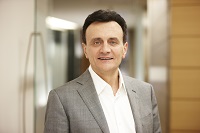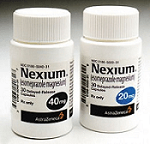 |
| AstraZeneca CEO Pascal Soriot |
AstraZeneca ($AZN) recently plunked down $575 million to get global rights to rom Takeda's chronic obstructive pulmonary disease (COPD) treatment Daxas. It was the kind of deal that currently intrigues CEO Pascal Soriot, something that will immediately pay off and which falls into one of the three areas around which he is trying to rebuild the company.
Soriot laid out his deal parameters Thursday to investors and journalists as the U.K. drugmaker reported earnings that were up but sales that were flat in 2015. More importantly, Soriot said in 2016 revenues and earnings will falter as generic competition eats into Crestor sales.
He said he feels AstraZeneca's pipeline is full after a late-in-the-year spending spree in which it agreed to spend $4 billion for a 55% stake in Acerta Pharma and $2.7 billion for ZS Pharma. With Acerta it gets a potential blockbuster medicine for blood cancer and with ZS a potential blockbuster for a deadly blood condition called hyperkalemia.
"We're building we believe formidable franchises, in oncology in particular," Soriot told journalists, according to Bloomberg. "If you look at oncology three years ago, we had nothing, absolutely nothing."
Those are longer term bets. For now Soriot suggested the U.K.'s second-largest drugmaker might be looking more toward pharma-type deals.
"The first thing is that as we said, they have to be accretive because, again, we believe our pipeline is full now," Soriot said in a call with analysts. "Importantly, they have to be strategically aligned with what we're trying to do. They have to be in autoimmune, respiratory, in cancer and cardiovascular diabetes, so that we keep building our presence in those key therapy areas."
As for size, he declined to offer specifics, saying only that the size of any deal will be directly proportionate to the amount of cash flow that it could add to the drugmaker's balance sheet.
 It has been a tough go for Soriot who two years ago argued against a $100 billion buyout from Pfizer ($PFE), convincing investors that AstraZeneca would better on its own. But the drugmaker, already battered by generic competition, faces two more years in which drugs will fall off the patent cliff. Its former top-seller, Nexium, is already seeing eroding sales from copies and Crestor will get hit this year. Next year it will be Seroquel XR. Even so, Soriot promises that growth will return in 2017 and that things will only get better from there.
It has been a tough go for Soriot who two years ago argued against a $100 billion buyout from Pfizer ($PFE), convincing investors that AstraZeneca would better on its own. But the drugmaker, already battered by generic competition, faces two more years in which drugs will fall off the patent cliff. Its former top-seller, Nexium, is already seeing eroding sales from copies and Crestor will get hit this year. Next year it will be Seroquel XR. Even so, Soriot promises that growth will return in 2017 and that things will only get better from there.
"After the next two years where we're going to have to face very substantial headwinds coming from those patent expiries, Crestor, Nexium, Seroquel, we still expect a very strong, very rapid period of growth in 2018 and beyond," Soriot said.
- here is a Thomson Reuters transcript of the analyst call
- more from Bloomberg
Related Articles:
Patent losses looming, AZ fights back with Brilinta, diabetes and China
AstraZeneca chief chalks up milestones on his map to $45B
AstraZeneca shrugs off pharma's emerging markets slowdown, but Lilly's suffering
AstraZeneca supercharging its Asia strategy with WuXi and Takeda deals